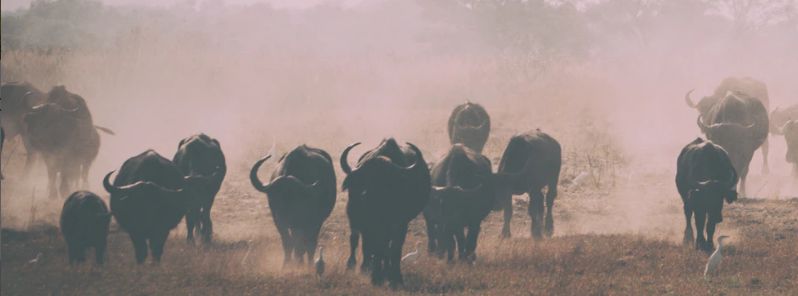Drought kills over 72 000 heads of cattle in Cunene Province, Angola

At least 72 473 heads of cattle died between April and December this year in Cunene Province, Angola, due to water and pasture shortage that resulted from the drought that struck the region, according to Agencia Angola Press (Angop).
The data was released to Angop by the head of the Veterinary Services of Cunene province, Estevao Camalanga.
Most of the cattle died from poor health and opportunistic diseases, Camalanga said, adding that some farmers and their herds of cattle were already returning to their home areas since November when it began to rain in the province.
"Some breeders are returning with their livestock to their areas of origin as rain has started to fall in the province of Cunene."
Farmers everywhere have it tough, but it’s especially the case in #Angola where farmers have lost 30,000 cattle to drought this year. This farmer, Coala, relies on his animals for income and to feed his family. “Without them, we’re in danger.” #hungercrisis @WorldVision pic.twitter.com/AzQ6f1srZa
— Brianna Piazza (@BriannaPiazza) October 22, 2019
On December 18, the Minister of State for the Social Area, Carolina Cerqueira spoke with local authorities in the city of Praia (Cape Verde) about the experience of battling drought and social assistance to people affected by natural calamities.
According to the minister, the country sought to draw on Cape Verde's experience in implementing programs to alleviate the effects of drought, as well as those linked to the implementation of educational and health actions in the most deprived communities.
The minister recalled that due to the drought in the south of the country, the Government had to implement a large emergency program to aid around two million of the drought-affected, especially in Cunene. The Prime Minister of Cape Verde, Ulisses Correia e Silva, stressed that the two countries will go together through brotherhood ties.
The worsening drought since the beginning of this year has also put millions of people at risk.

Featured image credit: @r3dmax/Unsplash

Commenting rules and guidelines
We value the thoughts and opinions of our readers and welcome healthy discussions on our website. In order to maintain a respectful and positive community, we ask that all commenters follow these rules.